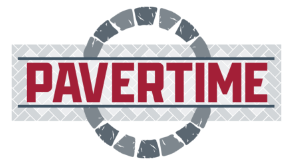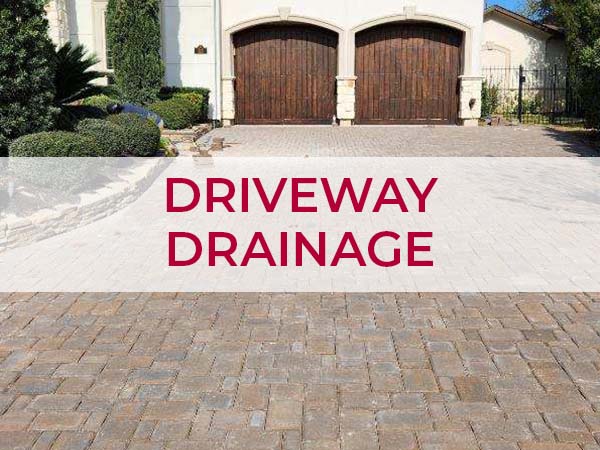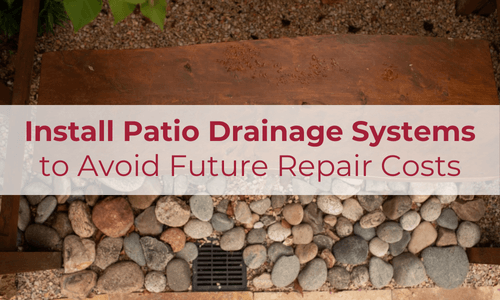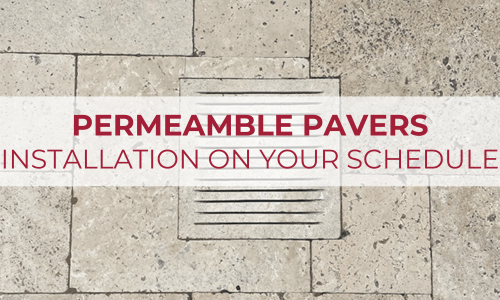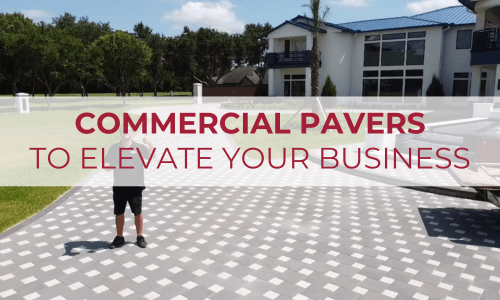It’s no surprise that the Houston area is prone to flooding and heavy rains. The longer you live in one place, the more likely you will learn what roads and regions tend to hold water in a severe rain event. If you’re lucky, you can navigate out of your neighborhood safely. But what happens when flood water pools in your driveway, leaving behind a wet, smelly mess once it can finally drain?
The best news is that you don’t have to be stuck with water ponding in your driveway or with the smell and discoloration of mold and mildew after heavy rains. Effective solutions and drainage systems can prevent flooding in your driveway. This blog will cover a few driveway drainage ideas you can consider to help.
Things to Consider When Looking at Driveway Drainage Ideas
If your driveway holds water, there are several factors to consider to find the best drainage system.
- Does your driveway have the proper slope needed to help the water drain?
- Where is the best location for excess water to drain? Is there an area in your side yard that could hold water, or would it be best if it was sent to the street?
- How much water needs to be diverted? Does your driveway have deep ponding after it rains, or is it a smaller amount of water leaving bad smells and staining?
Fully understanding the issues behind your driveway flooding problems can help you identify the best solutions.
Four Effective Driveway Drainage Ideas
1. Catch Basins
If your driveway is extensive and covers a lot of area, one of the better options for you might be using a catch basin. A catch basin is comprised of a large drain with an underground basin that helps catch large amounts of water, allowing it to be diverted to an area that can better withstand the large amount of water, such as the street or storm drains. The main job of a catch basin is to hold excess water until it can safely drain.
Catch basins are highly effective for quickly draining large areas, especially when concrete or impervious surfaces prevent water absorption.
Tip: You can learn more about catch basins here.
2. Channel Drains
Similar to catch basins, channel drains move water to an area where it can safely be pushed back into the environment, such as a storm drain. But while catch basins catch water, channel drains quickly move water using gravity along a concrete-lined trench or track topped by a decorative grate.
Channel drains are good options for smaller driveways with the appropriate slopes to help water drain quickly.
3. French Drains
A French drain crosses between a catch basin and a channel drain. However, the main difference is that the tube that helps move the water from the drain to the appropriate place for runoff has holes. These holes allow water to be absorbed into the ground during lighter, slower rains.
Tip: You can learn more about the various uses of french drains here.
4. Permeable Pavers
If you are looking to install a new driveway and address driveway drainage simultaneously, one of the best options might be using Permeable Pavers. Laid on a base of aggregate, permeable pavers help stormwater drain back into the ground, mimicking how the earth naturally absorbs water.
Permeable Pavers are an earth-friendly solution that offers large-scale drainage without the use of traditional drains.
Tip: Learn more about what makes permeable pavers unique here.
Which Solution is Best for Your Home?
Knowing which solution would best prevent flooding and standing water in your driveway can be challenging. Each of the driveway drainage ideas and solutions out there have pros and cons that should be considered before being installed. Of course, it’s important to remember that you need to consult a professional to get the best results.
Are you in the Houston area? Pavertime is here to help you! Backed by decades of experience and knowledge of the newest technologies and paver systems, Pavertime is the name you can trust. After walking the area and talking to you about your concerns, we will measure the slope of the driveway and consider the appropriate ways to handle the runoff before recommending a drainage system. We will only start a project once we have correctly evaluated the area; that’s our promise to you.
Call Pavertime today to schedule your free consultation (or fill out the contact form on our contact page). We’ll give you a no-obligation free quote on how best to deal with your water problems on your driveway. So don’t wade to your car again after heavy rain; call Pavertime today.
